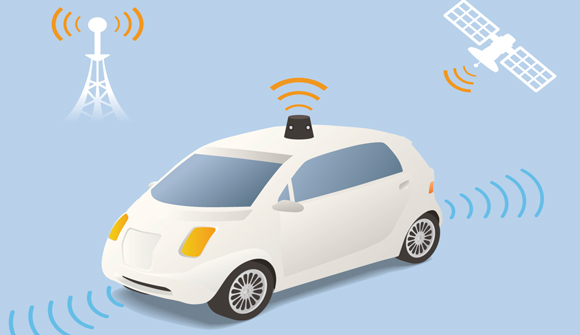
A few lines in a seemingly routine RAND Corp. report on the future of technology and law enforcement last week raised a provocative question: Should police have the power to take control of a self-driving car?
Human drivers are required to pull over when a police officer gestures for them to do so. It's reasonable to expect that self-driving cars would do the same. To look at it another way: Self-driving cars are programmed to stop at red lights and stop signs. Surely they should also be programmed to stop when a police officer flags them down. It is, after all, the law.
It's clear, then, that police officers should have some power over the movements of self-driving cars. What's less clear is where to draw the line. If a police officer can command a self-driving car to pull over for his own safety and that of others on the road, can he do the same if he suspects the passenger of a crime? And what if the passenger doesn't want the car to stop—can she override the command, or does the police officer have ultimate control? – Slate, Aug. 24, 2015
Our view of civil rights has to evolve as technology changes our lives. More often than not, the changes are for the worse. Fifty years ago, could the police enter your home without a warrant and review your family photos for criminal evidence? No, and they still can't today – though, of course, we know they do. However, they can order Facebook to give them access to photos you shared only with your selected friends.
Autonomous vehicle technology is developing rapidly. Car manufacturers say the technology is ready to go; only legal and financial barriers prevent them from deploying it right now. The insurance industry wants clear lines of liability for the inevitable accidents.
Last month we discussed how Hackers Can Use Your Car to Kill You. The same will be true for autonomous vehicles, and perhaps even simpler for hackers to accomplish. If your car doesn't kill you, it might kill someone else and then frame you for the crime. Much depends on who controls the digits that control your car.
Would law enforcement even need to take control of your car, though? The law will surely require autonomous vehicle software not to violate traffic laws. The bigger problem will be surveillance. If police can know who is in a particular vehicle in route to a specific destination, capturing fugitives will be simple. Even if they can't reroute the car, they can be waiting for you when you arrive.
Uber, the on-demand ride service popular in many cities, ran into criticism last year when new reports said executives were monitoring where an unfriendly journalist was going. Any regular rider's travel patterns would be valuable metadata.
It may take a long time to sort out all these issues. The most likely outcomes will not please anyone who wants to move freely and unobserved. Someone, whether a corporation or the government, will know everywhere you go and when you go there. The resulting databases will be irresistible to law enforcement.
There might be one upside, though. Records of your location at any given point in time might provide an airtight alibi if someone accuses you of a crime. That could be nice… presuming your enemies don't manipulate the records.
